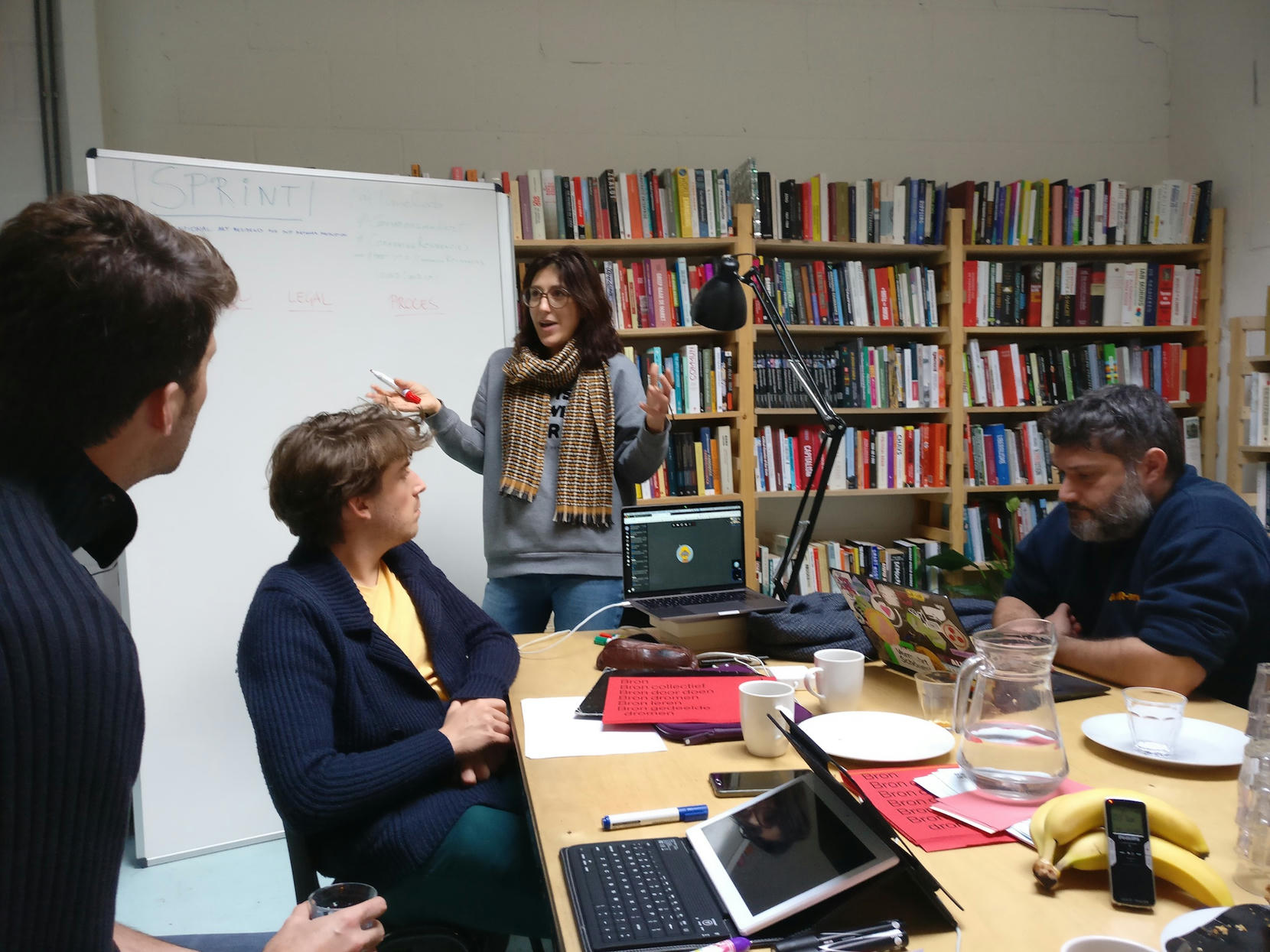[Sprint 2017] Commoning art residencies

A small group of people will be invited to take part in this sprint. They accept the challenge the format of residencies in Timelab. They will dive into different forms of residencies all over the world. They will exchange ideas and experiences from different disciplines and research and development programmes. Experts on differnt domains will be invited to reflect and discuss in between results. The concept of commons is never far away. How can the commons bring us new insights in the way a residency could be organized, communicated, programmed.
The end of the 2 days intensive encouter will be the outline and tools for a new residency format for 2018.
This event is a follow up of the encouter in spring 2017 in the context of the project Act Like a Commoner.
WHAT IS A SPRINT?
In agile software/product development, a sprint is a set period of time during which specific work has to be completed and made ready for review.
Each sprint begins with a planning meeting. During the meeting, the product owner (the person requesting the work) and the development team agree upon exactly what work will be accomplished during the sprint. The development team has the final say when it comes to determining how much work can realistically be accomplished during the sprint, and the product owner has the final say on what criteria need to be met for the work to be approved and accepted.
The duration of a sprint is determined by the team's facilitator. Once the team reaches a consensus for how many days a sprint should last, all future sprints should be the same.
After a sprint begins, the product owner must step back and let the team do their work. During the sprint, the team holds daily stand up meeting to discuss progress and brainstorm solutions to challenges. The project owner may attend these meetings as an observer but is not allowed to participate unless it is to answer questions. The project owner may not make requests for changes during a sprint and only the project manager has the power to interrupt or stop the sprint.
At the end of the sprint, the team presents its completed work to the project owner and the project owner uses the criteria established at the sprint planning meeting to either accept or reject the work.
Participants: Rasa Alksnyte, Zeljko Blace, Geert Vandermeersche, Andrew Paterson, Robbert&Frank Frank&Robbert, Marc Buchy, Evi Swinnen